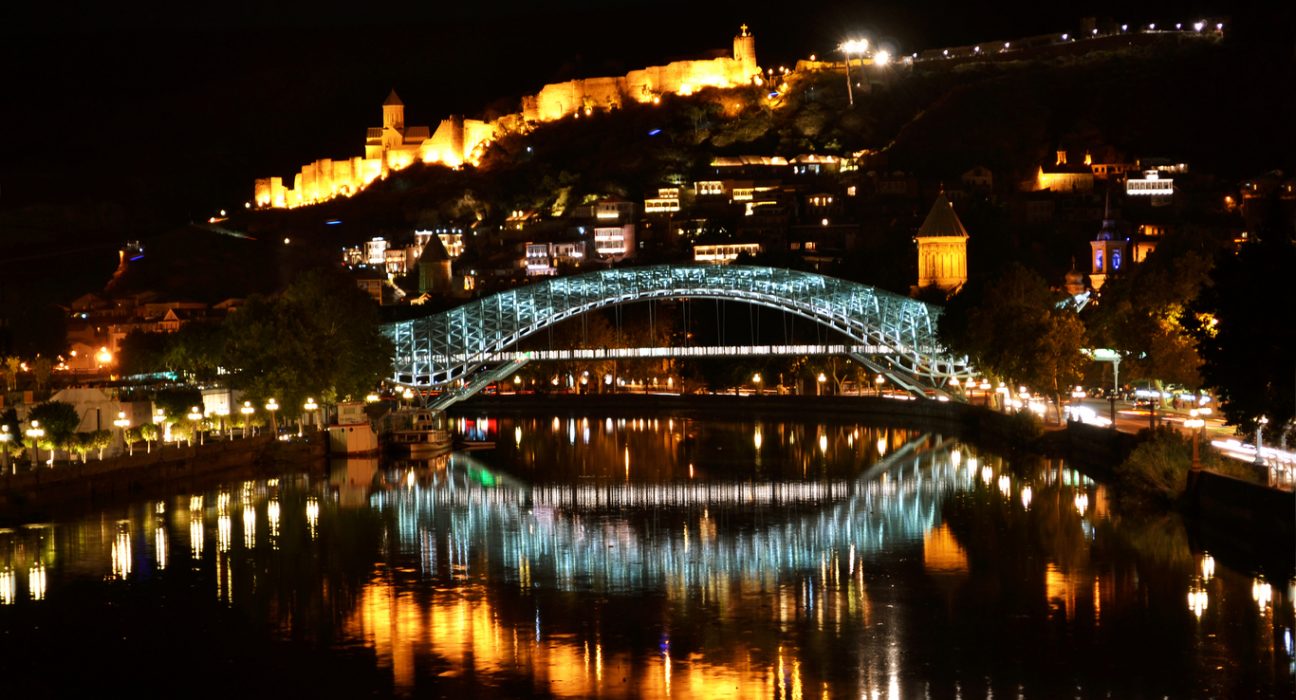Introduction
Tbilisi, the vibrant capital of Georgia, is a city that seamlessly blends the old and the new. With its rich history, diverse culture, and rapid modernization, Tbilisi offers a unique experience to visitors and residents alike. This article delves into the historical background of Tbilisi, its evolution through the ages, and its contemporary lifestyle.
Historical Background
Tbilisi’s history dates back to the 5th century when it was founded by King Vakhtang I of Iberia. The legend goes that the king discovered hot springs while hunting in the area and decided to establish a city named Tbilisi, derived from the Georgian word “tbili,” meaning warm.
Ancient and Medieval Periods
In its early years, Tbilisi was a strategic city due to its location on the crossroads of trade routes between Europe and Asia. The city’s favorable position attracted various invaders, including Persians, Arabs, and Turks. Despite these invasions, Tbilisi flourished as a cultural and economic hub.
During the 12th and 13th centuries, under the reign of King David IV and Queen Tamar, Tbilisi became the center of the Georgian Golden Age. This period saw significant cultural, architectural, and economic advancements.
Russian Rule and Soviet Era
In the 19th century, Tbilisi fell under Russian control. The city experienced substantial development, with the construction of new roads, railways, and buildings. The Russian influence is still evident in the city’s architecture and urban planning.
The Soviet era brought industrialization and modernization to Tbilisi, transforming it into a major industrial center. However, this period also saw political repression and cultural suppression.
Contemporary Tbilisi
Since gaining independence from the Soviet Union in 1991, Tbilisi has undergone a significant transformation. The city has embraced its historical roots while rapidly modernizing to become a dynamic urban center.
Economic and Urban Development
Tbilisi’s economy is now diverse, with key sectors including tourism, services, and manufacturing. The city has seen a construction boom, with modern skyscrapers and luxury hotels reshaping the skyline. Notable developments include the Peace Bridge, a symbol of the city’s modernization, and the Tbilisi Business Centre.
Urban renewal projects have revitalized historic neighborhoods like Sololaki and Avlabari, blending old-world charm with contemporary amenities. The Tbilisi Metro, expanded and modernized, offers an efficient mode of transportation for residents and visitors.
Cultural Revival
Tbilisi’s cultural scene is thriving, with numerous theaters, museums, and galleries. The Tbilisi Opera and Ballet Theatre and the Georgian National Museum are prominent cultural institutions. The city also hosts several international festivals, such as the Tbilisi Jazz Festival and the Tbilisi Film Festival, attracting artists and audiences from around the world.
The old town of Tbilisi, with its narrow streets and traditional wooden houses with ornate balconies, remains a testament to the city’s rich heritage. The sulfur baths in the Abanotubani district, believed to have healing properties, are a popular attraction for both tourists and locals.
Modern Lifestyle
Modern Tbilisi is a bustling metropolis with a cosmopolitan lifestyle. The city offers a wide range of dining options, from traditional Georgian cuisine to international gourmet restaurants. Shardeni Street and its surrounding areas are known for their vibrant nightlife, with numerous bars, clubs, and cafes.
Shopping in Tbilisi ranges from traditional markets like the Dry Bridge Market, where one can find antiques and handmade crafts, to modern malls such as the Tbilisi Mall and Galleria Tbilisi.
The city is also becoming a hub for tech startups and innovation, with a growing number of co-working spaces and incubators. Initiatives like Tech Park and Fabrika are fostering a dynamic entrepreneurial environment.
Challenges and Future Prospects
Despite its rapid development, Tbilisi faces several challenges. Traffic congestion, environmental concerns, and social inequality are pressing issues that need to be addressed. The city government is implementing various measures to tackle these problems, including the development of green spaces and public transportation improvements.
Looking to the future, Tbilisi aims to position itself as a major cultural and economic center in the region. The city’s rich history, combined with its modern aspirations, makes it a unique and attractive destination.
Conclusion
Tbilisi is a city of contrasts, where ancient traditions coexist with modern innovations. Its rich history, vibrant culture, and dynamic lifestyle make it a fascinating place to explore and live. As Tbilisi continues to evolve, it retains its unique charm and continues to captivate the hearts of all who visit.

